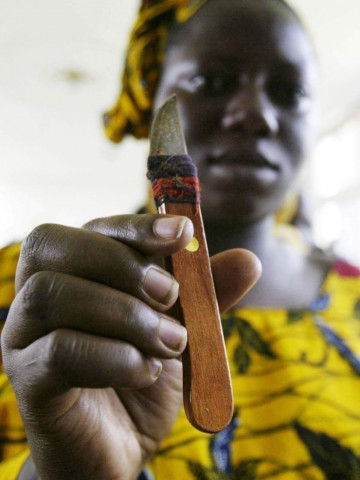UN chief launches campaign to end female genital mutilation
WHO says more than 125 million women have been mutilated in 29 countries in Africa and Middle East

UN chief launches campaign to end female genital mutilation
"The mutilation of girls and women must stop in this generation, our generation," Ban said on a visit to the Kenyan capital Nairobi.
"Men and boys must also be encouraged to support the fight against FGM - and they should be praised when they do."
FGM ranges from the hacking off of the clitoris to the mutilation and removal of the entire female genitalia, and is carried out from the youngest babies to teenagers.
More than 125 million women have been mutilated in 29 countries in Africa and Middle East, according to the World Health Organisation (WHO), which condemns the practice as a "violation of the human rights" of women.
Communities originally from those countries have also carried the painful tradition to Western nations.
"It is not culture, it is a violation of human rights," FGM survivor Kakenya Ntaiya said at the launch of the campaign. "Girls’ dreams, their hopes, their lives are being shattered."
Apart from the intense pain itself, immediate dangers include bleeding and infection.
In the longer term, risks include infertility and complications during childbirth, sometimes resulting in the death of the baby.
While illegal in multiple nations, FGM continues to be carried out in secret, often in basic conditions without anaesthetic.



















COMMENTS
Comments are moderated and generally will be posted if they are on-topic and not abusive.
For more information, please see our Comments FAQ